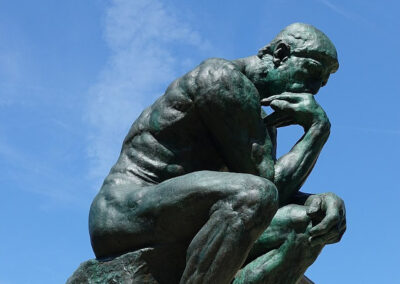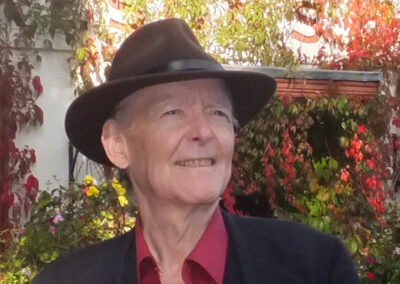The Art of Self-Scrutiny
The act of self-reflection is a ‘spiritual act’ by taking time out to connect the inner-self with the outer world. A view, Olsen suggests, that parallels Florence Nightingale’s thoughts that providing nursing care to others can be a spiritual act. More importantly, he highlights how reflection is essential to avoid burnout by helping nurses to stay connected with their passion for their profession. Yet, the reality for many nurses and midwives is that their working day is full of emotional extremes coupled with physical exhaustion. As Knight (2015) points out, working in highly pressurised clinical environments isn’t naturally conducive to the idea of pausing, engaging with feelings or staying with uncertainty.
Without some structured support, the focus on self-reflection can be viewed with suspicion and cynicism.
Reflection-on-Action v Reflection-in-Action
Reflection-on-action is the most common form of reflection. It involves mentally re-viewing events that have occurred in the past. The aim is to value your strengths and to develop different, more effective ways of acting in the future.
Reflection-in-action, on the other hand, requires a higher level of self-awareness and the ability to reflect on your actions or those of others, in the moment, as the activity is actually taking place.
If recalling incidents with strong emotional content blocks you from consciously reflecting on your day, try viewing it from a detached, dissociated point of view. For example, seeing the incident play out in your mind’s eye as if on a movie screen.
At the end of a stressful day, this can be a good way to consider what you would like to change about the situation. This form of reflection can also be a useful stress management tool, as feelings that might otherwise have been suppressed can be reflected on consciously, deliberately and openly.
***
Objective Thinking
Objective Thinking is a crucial aspect of Reflective Practice.
The nature of thought is obviously personal, being the product of our own brain, so our own thinking tends to be subjective to some degree. Where our thinking is very subjective, for example when we feel very emotional about something, this subjectivity can become unhelpful, especially if we are stressed or angry which can substantially distort interpretations. If reflective thinking is to be useful for our learning and development, and for improving our actions and decisions, then this reflective thinking must include some objectivity. If decisions are based on wrong data, then outcomes tend to be unhelpful, or worse.
We need to be more subtle in understanding what objectivity and subjectivity mean in relation to Reflective Practice. We can increase our objectivity by increasing our awareness of our assumptions and expectations. Or put another way, we will reliably increase our objectivity in Reflective Practice by recognising our assumptions and expectations, and being able to differentiate this data from objective facts and evidence. Each of us has a different individual outlook on the world. This develops from the circumstances and influences that shape us into adulthood. Our reflections are filtered through these beliefs, values and attitudes, so that our interpretations are likely to be biased. Our thinking is instinctively ‘value-driven’.
Metacognition
“… Metacognition can take many forms; it includes knowledge about when and how to use particular strategies for learning or for problem solving. There are generally two components of metacognition: knowledge about cognition, and regulation of cognition… This higher-level cognition was given the label metacognition by American developmental psychologist John Flavell (1979). The term metacognition literally means cognition about cognition, or more informally, thinking about thinking. Flavell defined metacognition as knowledge about cognition and control of cognition. For example, I am engaging in metacognition if I notice that I am having more trouble learning A than B; or if it strikes me that I should double-check C before accepting it as fact,.. (JH Flavell 1976).” Wikipedia
Metacognition is an important aspect of modern Reflective Practice. There is a broad correlation between metacognition (being aware of one’s own thinking) and conscious competence (being aware of one’s own capability) – because, for example, people cannot go beyond their limits until they know what their limits are. Metacognition is awareness and understanding of one’s own thought processes. To achieve a more objective view, we can reflect on our prejudices and assumptions.
We can also use objective evidence to support our reflections, and in this way reduce bias in interpreting events and experiences. Truth requires objective confirmed evidence. Subjective reflections can be faulty, especially when based on perceptions alone. So particularly when reflecting on human values and social relationships we can increase the validity of our reflections by using evidence. Subjective reflections can be valuable, provided we are aware of the dangers of bias. Moreover, while isolated reflections are often unreliable and transient, a collection of subjective reflections can produce a meaningful picture. This ‘whole picture’ tends to be greater than the sum of its parts.
Searching for new knowledge or truth towards our own personal development requires more than merely increasing objectivity, and reducing the potential for bias inherent in subjective interpretation; we must draw on both of these data sources, weighing and balancing them to formulate thinking which is informed by:
• Facts and evidence, and other objective data, and
• Personal relative reactions and feelings, and other subjective data, and
• Our analysis of what these things mean, their relative validities and their most reliable blend.
***
Reflective Practice
Reflective practice is a core component of professional development for all health professionals. Without it, learning and self-growth become harder, and job satisfaction can suffer. It could be argued that at its best, reflection on what’s gone well or badly in the day is a natural yet unstructured aspect of a nurse’s role. It’s part of being a good practitioner.
Reflective practice encourages innovation
Reflective practice allows you to adapt lessons to suit your classes. You can create and experiment with new ideas and approaches to your teaching to gain maximum success. By varying learning and experimenting with new approaches, students have a richer learning experience. They will think more creatively, imaginatively and resourcefully, and be ready to adapt to new ways and methods of thinking.
Reflective practice encourages engagement
Being reflective helps you challenge your own practice as you will justify decisions and rationalise choices you have made. It encourages you to develop an understanding of different perspectives and viewpoints. These viewpoints might be those of students, focusing on their strengths, preferences and developments, or those of other colleagues, sharing best practice and different strategies.
Critical Reflection
The National School for Healthcare Competence describes Critical Reflection in the following terms:
It is highly relevant as you transition from training into practice. It is particularly valuable during periods of unusual/rapid change to maintain safe clinical practice; will help with ensuring that you enter future practice with insight of what will be required of you and from you and foresight on how you will manage those expectations; will help you realise where you need to focus your energies as you continue to develop in your role as a Clinical Scientist
The Scamper method was proposed by Alex Osborne in 1953. In 1971, American psychologist Bob Elerle advocated the SCAMPER method in his book SCAMPER: “Games for Imagination Development.” It is a way to stimulate people’s creative thinking and it is one of the easiest graphic techniques of mind mapping for critical thinking and brainstorming ideas.
Transformative Learning
Jack Mezirow was an American sociologist and Emeritus Professor of Adult and Continuing Education at Teachers College, Columbia University. He is generally considered to be the founder of the Transformative Learning concept, which divides knowledge into three types: Instrumental, Communicative, and Emancipatory.
Mezirow asserts that examining our outlook on the world, and challenging the assumptions and preconceptions underlying our values and beliefs, can be emotionally threatening. Transformative learning “…Incorporating the examination of assumptions, to share ideas for insight, and to take action on individual and collective reflection…” Challenging the values and beliefs that form part of our self-identity can challenge the very core of who we are. Conversely Mezirow’s work suggests that self-reflection can empower us to be more open and emotionally capable of change and reflection: a liberating process of intellectual and emotional growth. In his 2000 collaborative book ‘Learning as Transformation – Critical Perspectives on a Theory in Progress‘, Mezirow defines Transformative Learning as incorporating the examination of assumptions, to share ideas for insight, and to take action on individual and collective reflection. Mezirow offered the following transformative learning structure:
1. Critical reflection on one’s assumptions
2. Discourse (communication) to validate insights from the critical reflection
3. Action







